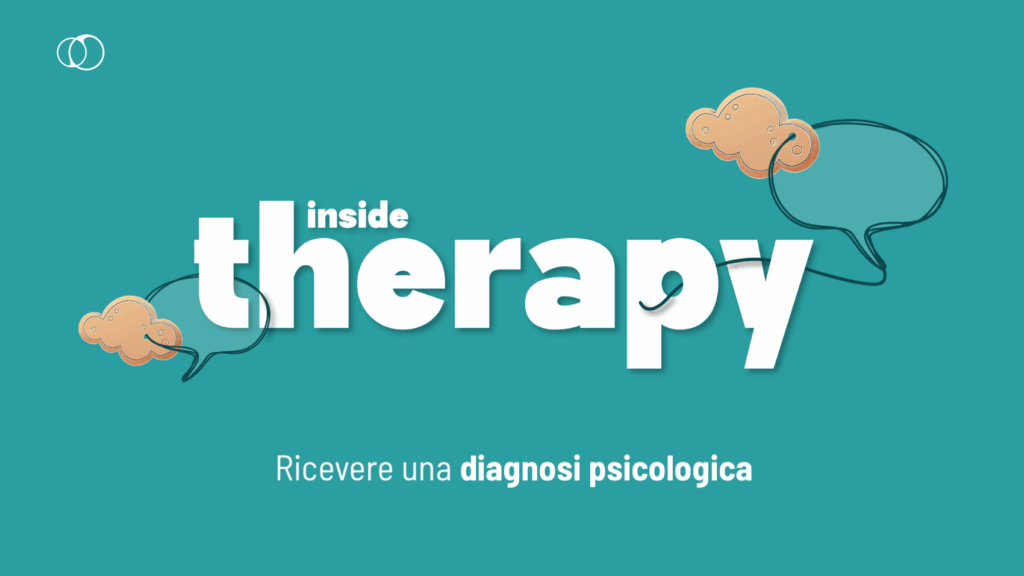
I need answers: diagnosis in psychology
I can no longer face the world … people … I don’t feel it happens, I don’t understand myself either. What’s going on? Giada, 56 years old.
Many people like Giada can experience, in particular circumstances of their life, a period of psychic suffering and feel the need to get answers. Having awareness that something in oneself has changed, starting from one’s thoughts, one’s emotions and behaviors that are implemented, can arouse discomfort, malaise and concern.
What to do then? Giada has decided to contact a specialist and look for your answers through one psychological diagnosis.
The diagnosis In the field of mental health it is a process in which the information regarding the psychic suffering reported by an individual is collected: when it began, as has manifested itself and how it was initially managed, but also fragments of family history (any relatives with similar symptoms, impact of discomfort on the family unit etc.).
Receive a diagnosis It is not only equivalent to receiving a diagnostic label. A person is much more than one diagnosisbut the diagnosis It can prove to be a useful tool to describe experiences and experiences of discomfort lived.
Does diagnosis count?
The diagnosis It represents a starting point and arrival, for those who receive it and for the professionals who perform it or take the person care.
Through the psychological diagnosis You can give a name to the experienced suffering, understand your experiences, the reason for your thoughts, of your emotional or behavioral reactions and choose the most appropriate treatment options.
Get a diagnosis It is a useful step to receive effective treatment and improve your quality of life.
Possible reactions to diagnosis
The psychological diagnosis It can have a deep impact in those who receive it, generating emotional level sometimes contrasting reactions.
Some people may develop negative and misfit reactions:
- feelings of anger, despair, impotence and frustration (Why just to me?);
- Difficulty adaptation to small daily challenges;
- self-stigmatization, developing negative thoughts and beliefs about themselves (I’m crazy … I’m disturbed … I will never be able to have a life like the others. Nobody will want me!);
- identification with one’s own diagnosis/pathology (I’m depressed, I can’t do things like the others)
- Functionalization, that is, to use your diagnosis/mental illness to obtain a secondary gain, for example attention, sympathy, closeness of desired people, justification to passively respond to difficult situations or passively accept unsuccessful periods of life.
Reactions of this type can lead to social isolation, to access care with delay and even the worsening of the person’s psychophysical health.
How to avoid similar reactions? Recall that the diagnosis It is not a brand on the person, a label written on a sheet of paper. There psychological diagnosis It is part of the relationship between the person and the professional. For this, those who receive the diagnosis has the right to ask questions to the specialist, to clarify any doubts and any meaning and every possible impact that the diagnosis It can have in everyday life.
Communicating in an open and transparent way with the healthcare professional can help to accept his discomfort and the name that this discomfort has. Accepting means adhere to treatment and have hope for a better life.
Diagnosis is power
Following the psychological diagnosissome individuals can experience relief, hope, subjective perception of empowermentor of greater control and awareness of one’s life and decisions that concern one’s health. There psychological diagnosis It is understanding of the problem: you can finally understand the mechanisms behind distorted or harmful thoughts and behaviors, you can deal with a topic of mental health for the first time, or deepen it thanks to information and input provided by the clinician or disseminated by specialized and reliable sources.
I received a diagnosis of personality disorder: and now?
A diagnosis of personality disorder can be unexpected and destabilizing for those who receive it. It is important to feel actively involved in evaluation and care, discussing every aspect relating to diagnosis with the reference healthcare professional.
I don’t know where and how to find help! What if they label me like the crazy one at school, to avoid?
Some people may encounter difficulties in finding information relating to the closest mental health services. We need to identify confidential contexts and specialized professional figures both in diagnosis both in the treatment of personality disorders. This can help feel less alone and more capable of managing symptoms in the short and long term.
Recall that one diagnosis It is not forever. With the help of specialist support, even in chronic conditions, such as a personality disorder, it is possible to learn to manage symptoms and live a life worthy of being lived (M. Linehan).





